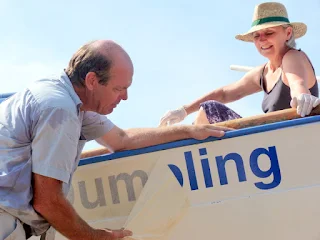Reuters marked the latest phase in the nation’s
economic crisis with the headline, “Portugal
The lead
paragraph in an Associated Press
report on the same day said that “Portugal's government is taking the
bailed-out country deeper into austerity, announcing Monday sharp tax increases
next year that risk worsening a recession and stoking public discontent.”
A couple of days
later the Economist commented: “Seldom have protesters, economists and politicians been so
united in describing the plans: ‘brutal’, ‘a crime against the middle class’, a
‘fiscal atomic bomb’. Few agree with (Finance Minister) Mr Gaspar’s claim that
‘this is the only possible budget’ and that to question it is to risk being
subjected to a ‘dictatorship of debt’ with Portugal condemned to depend on its
official creditors indefinitely.”
As the story
moved on, the Washington Post declared
in a headline that “Bailed-out Portugal Portugal
A dispatch run by Canadian Press among others was about as good as it got this week:
“The junior party in bailed-out Portugal
An important side issue in this grim
economic saga is that not only has it created great despondency in this
country, but also made Portugal
Time magazine recently ran an article by Bill
Clinton entitled ‘The Case for Optimism.’ The former American president opened with the
following observation. “Our world is more interdependent than ever. Borders
have become more like nets than walls, and while this means that wealth, ideas,
information and talent can move freely around the globe, so can the negative
forces shaping our shared fates. The financial crisis that started in the U.S.
Optimism about Portugal
We could do with
more of that.

.jpg)








